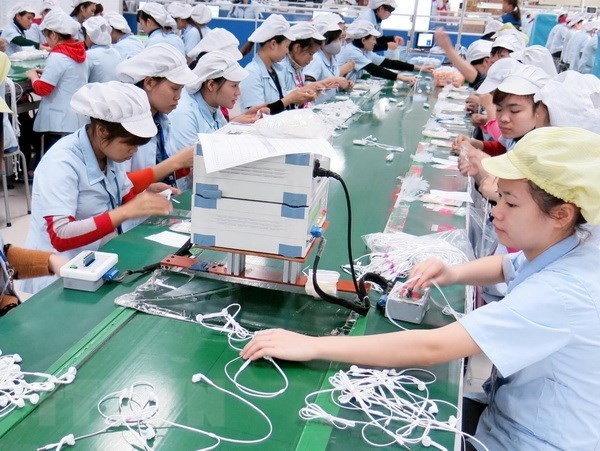Vietnam-RoK investment partnership thrives over three decades
Since the Republic of Korea (RoK) started to invest in Vietnam in the 1990s, especially since the two countries set up their bilateral diplomatic relations in 2009, the country has become an important investor of Vietnam with capital rising year after year.

According to the Ministry of Planning and Investment (MPI), the cumulative registered FDI from the RoK in the period from 1988 – when the first Law on Foreign Investment of Vietnam was put in force - to September 2022 amounted to more than US$80.5 billion with more than 9,400 valid projects, making the RoK the biggest investor in Vietnam so far.
Since the Vietnam – Korea Free Trade Agreement (VKFTA) officially came into effect in 2015, the RoK’s registed FDI into Vietnam almost doubled.
A milestone was seen in 2014 when the RoK became the largest investor in Vietnam with a total registered capital of US$7.32 billion. Statistics of the Ministry of Planning and Investment showed that the registered FDI from the RoK hit a record of US$8.49 billion in 2017 but slowed down to US$7.2 billion in 2018 and US$7.57 billion in 2019.
Due to the impacts of the COVID-19 pandemic, the FDI from the RoK dropped to US$3.95 billion in 2020 but bounced back to US$4.95 billion in 2021.
From January to September this year, the RoK registed US$3.8 billion of FDI in Vietnam, a drop of 2.38% against the same period last year.
Although ranking second in terms of registered FDI value in the January-September period after Singapore, the RoK was the partner with the highest number of investors who showed interest and made new investment decisions in Vietnam in the period, the ministry’s report revealed.
The RoK is becoming an increasingly important investor in Vietnam, not only because of its huge capital value but also the compatibility of the investment to Vietnam’s FDI attraction policies. The presence of Korean enterprises in most of the economic sectors in Vietnam was contributing significantly to the country’s economic restructuring, export growth and job creation.
According to the MPI's Foreign Investment Agency, Korean investment was mainly poured into the processing and manufacturing industry (74% as of November 20, 2021) thanks to the heavy investment of high-profile investors such as Samsung, LG, Hyundai, and Posco, followed by the real estate business (13.1%) and construction (3.8%).
Research by Bui Thi Hong Ngoc and Doan Thi Thu Huong from the Vietnam Institute of Economics pointed out that the strong FDI inflow from the RoK helped Vietnam upgrade its participation in the global value chain as well as change the export structure. Vietnam’s export structure was shifting from large percentage of low added value products like agro-forestry-fishery and raw materials to those with high technology content and high added value such as electronics.
The presence of Korean investors such as Samsung, LG, Hyosung, Hanwha, Hyundai, CJ, Lotte, and Posco promoted the development of the supporting industry in Vietnam.
Notably, the network of local suppliers to Samsung increased to 254 as of the end of 2021, 51 of which were Tier-1, from just four in 2014.
Samsung, now the most high-profile Korean investor in Vietnam with an estimated investment of more than US$20 billion, said that the group will continue to provide support to enable domestic enterprises to participate more in the global value chain.
It is estimated that there are more than 8,000 Korean enterprises operating in Vietnam which provide 1 million jobs domestically and contribute around 25-30% of Vietnam’s export revenue every year.
At a dialogue with the RoK’s Ambassador Park Noh-wan and representatives of Korean associations and enterprises in Hanoi in late July, Prime Minister Pham Minh Chinh pledged to create more favourable conditions for foreign investors in general and the Korean business community in particular to invest efficiently, successfully and sustainably in Vietnam, with a focus on administrative reforms.
Vietnam expected more investment from the RoK in the fields of high technology, innovation, research and development, digital technology, renewable energy, electronics and infrastructure development, he said.
The PM expressed his hope that the FDI inflow from the RoK will help integrate local firms into the global supply chain network while promoting the development of a digital economy, green economy, circular economy and sustainable development of Vietnam.
